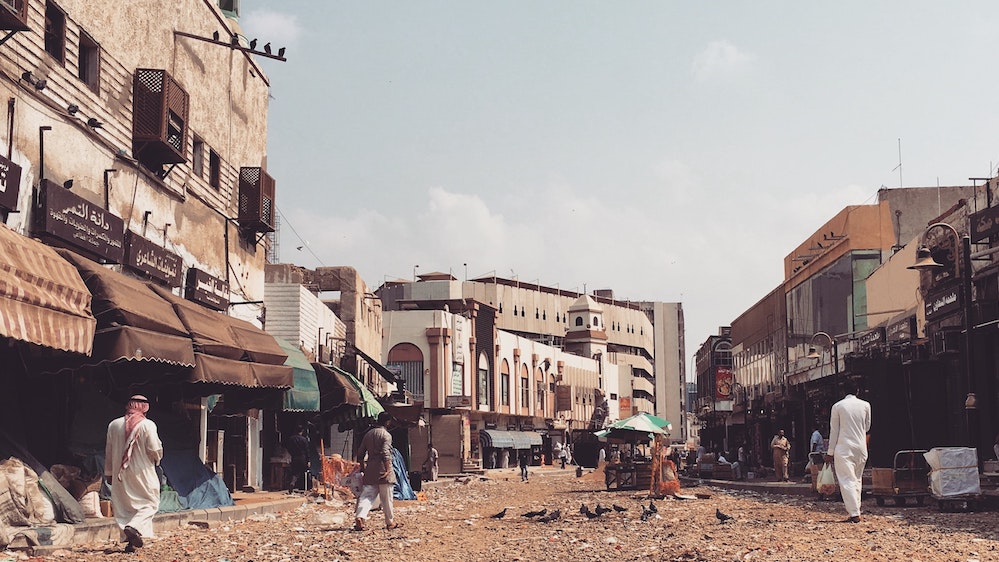About the project
What does refugee protection look like in states facing extraordinary refugee influxes and who are not party to the key international legal instruments providing for the protection of the world's refugees?
The states of the Arab Middle East are at the frontier of the international refugee regime. Yet, few have signed the Refugee Convention and no states have developed comprehensive national asylum systems. This reluctance to implement fully the international refugee law regime is paradoxical for a region where several states have complex histories of alternatively creating and hosting large refugee populations.
The issue of AME states’ lack of commitment to the Refugee Convention has received limited scholarly attention. The REF-ARAB project sought to address this blind spot by studying the multifaceted characteristics of refugee protection in the AME through a study of the practice of, and interaction between, actors on a global, national and local level.
Through an interdisciplinary approach, REF-ARAB has researched refugee protection through three interconnected pillars: i) Refugee History; ii) United Nations High Commissioner for Refugees (UNHCR) & International Protection; iii) Rule of Law & Legal Aid.
Objectives
The REF-ARAB project was guided by the following objectives:
- To study the historical and political circumstances related to why so many states in the AME region have remained non-parties to the Refugee Convention;
- To explore how UNHCR executes its mandate to provide international protection to refugees in these same states;
- To examine the avenues available for refugees in these countries by means of non-governmental legal aid organizations in securing legal protection on the basis of human rights instruments and other domestic legislation.
Research team
The REF-ARAB project drew together an international and interdisciplinary team, consisting of researchers from the Universities of Oslo, Warwick, York, Glasgow and Erbil Polytechnic University. Two postdoctoral researchers were hired in 2020.
An advisory board of local practitioners and scholars from Oxford University, Boston University, and Lebanese American University was also attached to the project.
During 2020-2022 data collection took place in a number of countries, including Switzerland, Iraq, Saudi Arabia, Lebanon and Jordan.
Outcomes and research findings
REF-ARAB’s theoretical and intellectual contribution is an empirically-grounded analysis of the relation between non-signatory AME states and the international refugee law regime. In total, the project has produced 18 academic texts, including journal articles, book chapters and master theses.
The main findings include revealing the scope and necessity of a broader historical and temporal framework for understanding current refugee situations. REF-ARAB has provided crucial insights into the historical linkages between the UN refugee regime and AME states, specifically in the cases of Saudi Arabia, Lebanon and Algeria.
The research findings have furthermore emphasized the changing inter-relationships between UNHCR, state and refugee, and contribute to our understanding of the intended and unintended consequences of the UNHCR-state-refugee interactions.
The research has explored the role of the UNHCR in AME states more generally, zooming in on Lebanon, Jordan, and Saudi Arabia as key case studies for detailed scrutiny. By exploring refugee rights mobilization, REF-ARAB specifically contributes key insights on how the UNHCR-refugee dynamic influences the development of protection policy.
REF-ARAB also provides a comprehensive understanding of the processes of litigation and the role of legal aid organizations by drawing on in-depth fieldwork in Jordan, Lebanon and in the Kurdish Region of Iraq (KRI).
Research comic on refugee mobilization
The project has given rise to the graphic novel Cardboard Camp: Stories of Sudanese Refugees in Lebanon. The comic is based on Professor Janmyr's field research on refugee protection in Lebanon and largely evolves around a protest camp that was set up outside the UN Refugee Agency, UNHCR, in Beirut.
Cardboard Camp is available free of charge online here, in both English and Arabic. It is also available in print.
Special feature of Forced Migration Review
The REF-ARAB project partnered with Forced Migration Review on a special issue exploring the role of mobilization in supporting the rights of forced migrants in the Middle East and North Africa region (MENA). The feature is available in English, Arabic, French and Spanish on FMR's website here.
The contributors show the importance of acts of mobilization in different locations and contexts. Taken together, the special issue highlights how solidarity and bottom-up approaches are vital for ensuring meaningful and safe rights mobilization in challenging environments.
Financing and duration
REF-ARAB is funded by the Research Council of Norway's independent projects (FRIPRO) program. REF-ARAB commenced on 1 July 2019 and finished on 30 October 2023.
